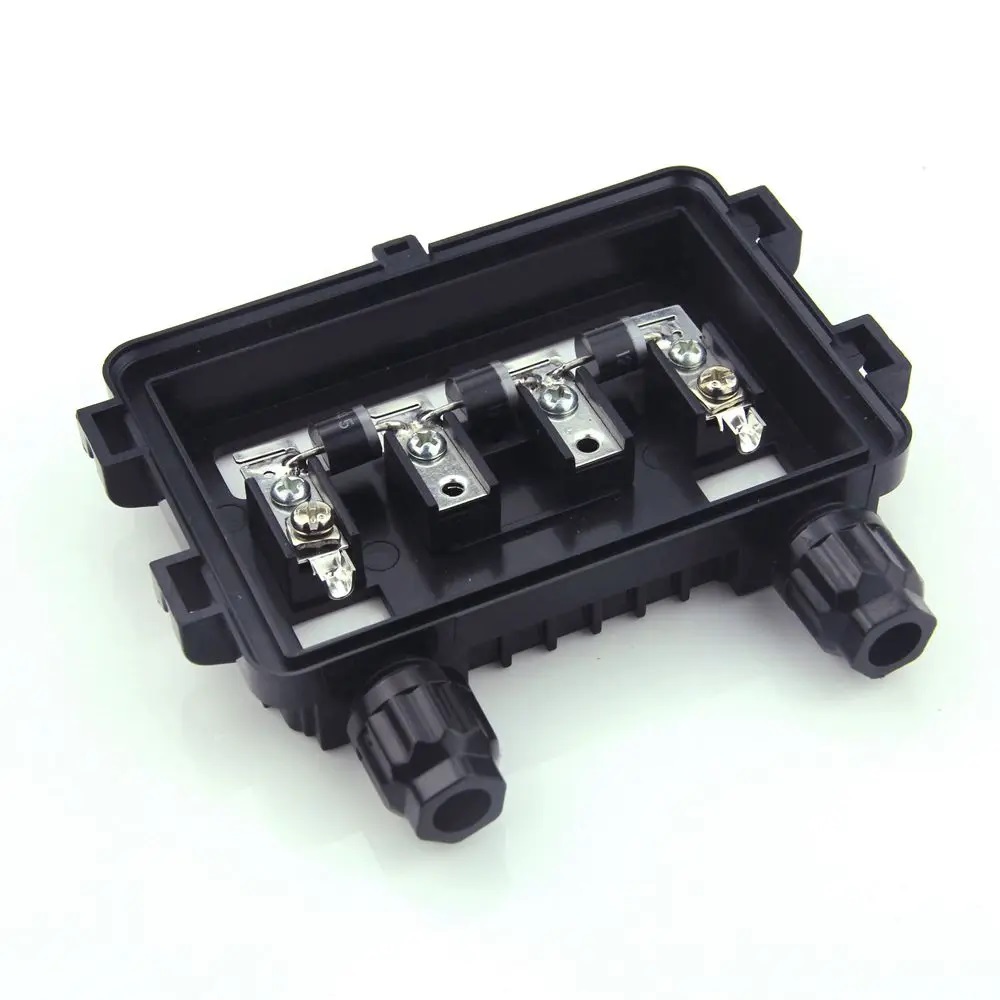Junction boxes for solar panels play a crucial role in connecting the individual solar cells within a module and facilitating the electrical output of the entire solar panel. They serve as a point for interconnecting the solar cells, providing protection, and enabling the wiring to the external electrical system.
- Standard Junction Box:
- This is the most common type of junction box found on solar panels. It typically contains bypass diodes, which help mitigate the impact of shading or cell mismatch issues by allowing current to bypass affected cells. Standard junction boxes are weatherproof and designed to withstand outdoor conditions.
- Integrated Junction Box:
- Some solar panels come with an integrated or built-in junction box. In this design, the junction box is an integral part of the panel structure. Integrated junction boxes can provide a sleeker appearance and may simplify the installation process.
- Half-Cut Cell Junction Box:
- In solar panels with half-cut cells, the junction box is often divided into two sections, each corresponding to one half of the panel. Half-cut cells are used to reduce resistive losses and increase the overall efficiency of the solar module.
- Smart Junction Box:
- Smart junction boxes may incorporate additional electronics for monitoring and optimizing the performance of individual solar panels or the entire solar array. These can include features such as Maximum Power Point Tracking (MPPT) to improve energy harvest.
- Multi-String Junction Box:
- Multi-string junction boxes are designed to accommodate solar panels with multiple strings of solar cells. Each string has its own set of bypass diodes and wiring, allowing for more flexibility in system design and shading tolerance.
- Customized Junction Boxes:
- Depending on the manufacturer and specific requirements, solar panels may use customized junction boxes tailored to the panel’s design and intended application. Customization can involve the arrangement of diodes, additional features, or specific connectors.
- Waterproof and Weatherproof Junction Boxes:
- Regardless of the specific type, most junction boxes for solar panels are designed to be waterproof and weatherproof. They are constructed to protect the electrical components from environmental factors such as rain, snow, and humidity.
- High-Voltage Junction Boxes:
- Some solar panels are designed for high-voltage applications, and their junction boxes are tailored to handle higher voltages safely. This is common in utility-scale solar installations.
- DC Optimizers:
- While not traditional junction boxes, DC optimizers are devices that can be connected to individual solar panels to enhance their performance. DC optimizers perform functions such as Maximum Power Point Tracking (MPPT) and are installed near the panels but outside of the traditional junction box.
When selecting or working with junction boxes for solar panels, it’s essential to consider factors such as the electrical specifications of the solar panels, environmental conditions, and the specific requirements of the solar installation. Compliance with relevant industry standards and regulations is also crucial to ensure the safety and reliability of the solar panel system.


